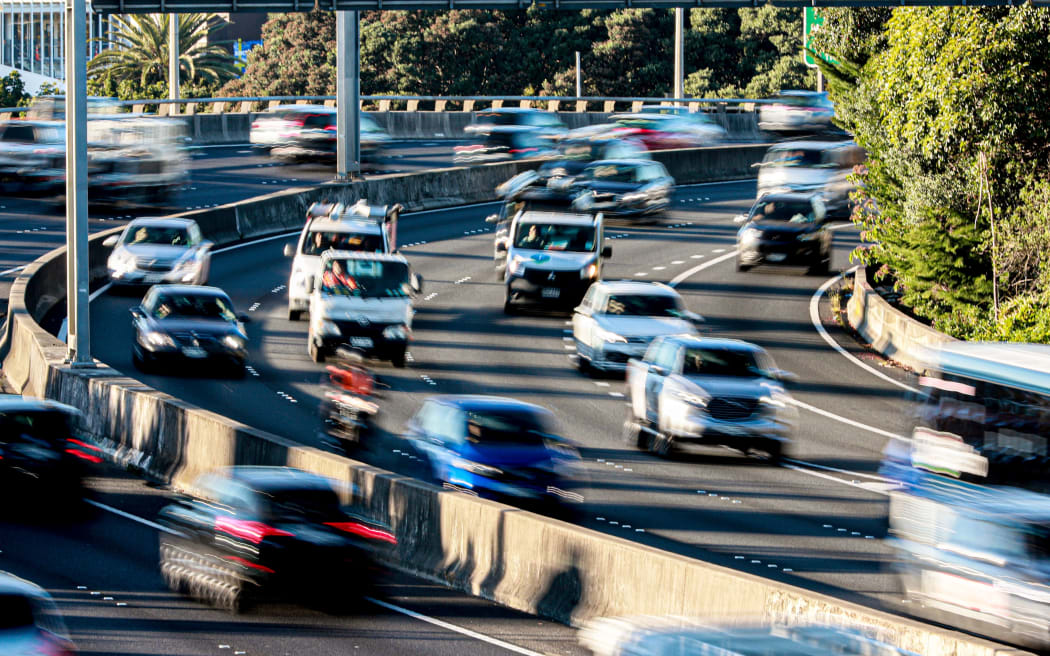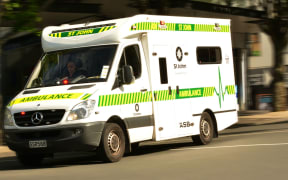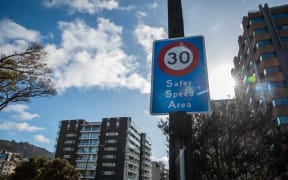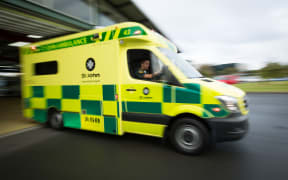
File photo: While there were 31 less road deaths in 2023 compared to 2022, the longer-term picture showed that tragic incidents continued to cast a severe shadow over the country's roads, the AA says. Photo: RNZ / Marika Khabazi
The Automobile Association is welcoming a drop in the nation's road toll - but says it's still far too high relative to other countries and significantly more than a decade ago.
Provisional figures released today show 343 people died in car crashes in 2023, a drop of 31 deaths from the previous year.
AA road safety spokesman Dylan Thomsen said any year when the road toll was lower than the year before was positive, but it still amounted to almost one death every day.
It was also 90 deaths more than the 253 deaths recorded ten years earlier in 2013.
"So it's a bit of a mixed bag really. In the year-on-year picture, you'd say 2023 was better than the year before, and that's a good thing. But longer term we're really struggling to make consistent progress and we've just got far too many people dying on the roads for a first-world country, when we compare ourselves to other nations."
Thomsen said the key country for comparison was Australia because it was so similar to New Zealand in many ways.
If New Zealand had the same per capita rate of road deaths as Australia, there would have been fewer than 250 people killed on New Zealand roads last year instead of 343.
"That's a huge difference. Wealth and income does play a part in countries' road safety performance, because better quality vehicles and better roads make a massive difference," he said.
"So we think that's one part of the of the puzzle. Our state highway network is very much in need of improvement and upgrading. It's very old school and we need to see more stretches of highway with modern safety design such as median barriers, so that you actually can't have vehicles going head-on into each other."
However, improved road safety could not be achieved by changing just one factor.
It had to be a combination of making roads better, making people better drivers, and making vehicles safer.
One area were New Zealand was lagging behind was in its high proportion of fatal crashes involving drivers who were either drunk or on drugs.
Thomsen said the AA wanted to see greater enforcement of drink-driving laws, the introduction of roadside drug testing, and expanded use of alcohol-interlock devices for repeat drink-drivers.
For that reason the AA had been "hugely encouraged" by a jump in the number of breath-alcohol tests carried out last year, from 1.6 million in 2021/22 to 2.6 million in 2022/23.
"That is certainly one area where we have not been doing enough. So it was really fantastic last year to see the police put in a major effort to get alcohol testing numbers back up close to their target of 3 million tests a year. That was the first time in a decade they've got close to that number," Thomsen said.
"If we can keep seeing that done year after year, with a really high police presence and targeting enforcement around alcohol and drugs, that is going to make a big difference."
On the coalition government's move to scrap the Road to Zero strategy, Thomsen said it made sense to re-evaluate the plan because little progress had been made on its aim of reducing deaths and serious injuries by 40 per cent by 2030.
"There was a lot of good intention in Road to Zero. But, ultimately, it struggled to actually deliver actions to go with those intentions and the words. We're coming up to halfway through the decade that strategy was targeting and we haven't seen much consistent progress taking place."
Thomsen said the AA wanted to see "a bit of a refresh" and a re-evaluation of the actions that would make the biggest difference.
However, regardless of what the strategy was called, road safety needed to remain a major focus of the government's work around transport, he said.
Commenting on the 2023 road toll, a police spokesperson said speed, alcohol and drugs, and distraction remained the main causes of death and serious injury on New Zealand roads.
Wearing a seatbelt could also make the difference between surviving a crash or not.





